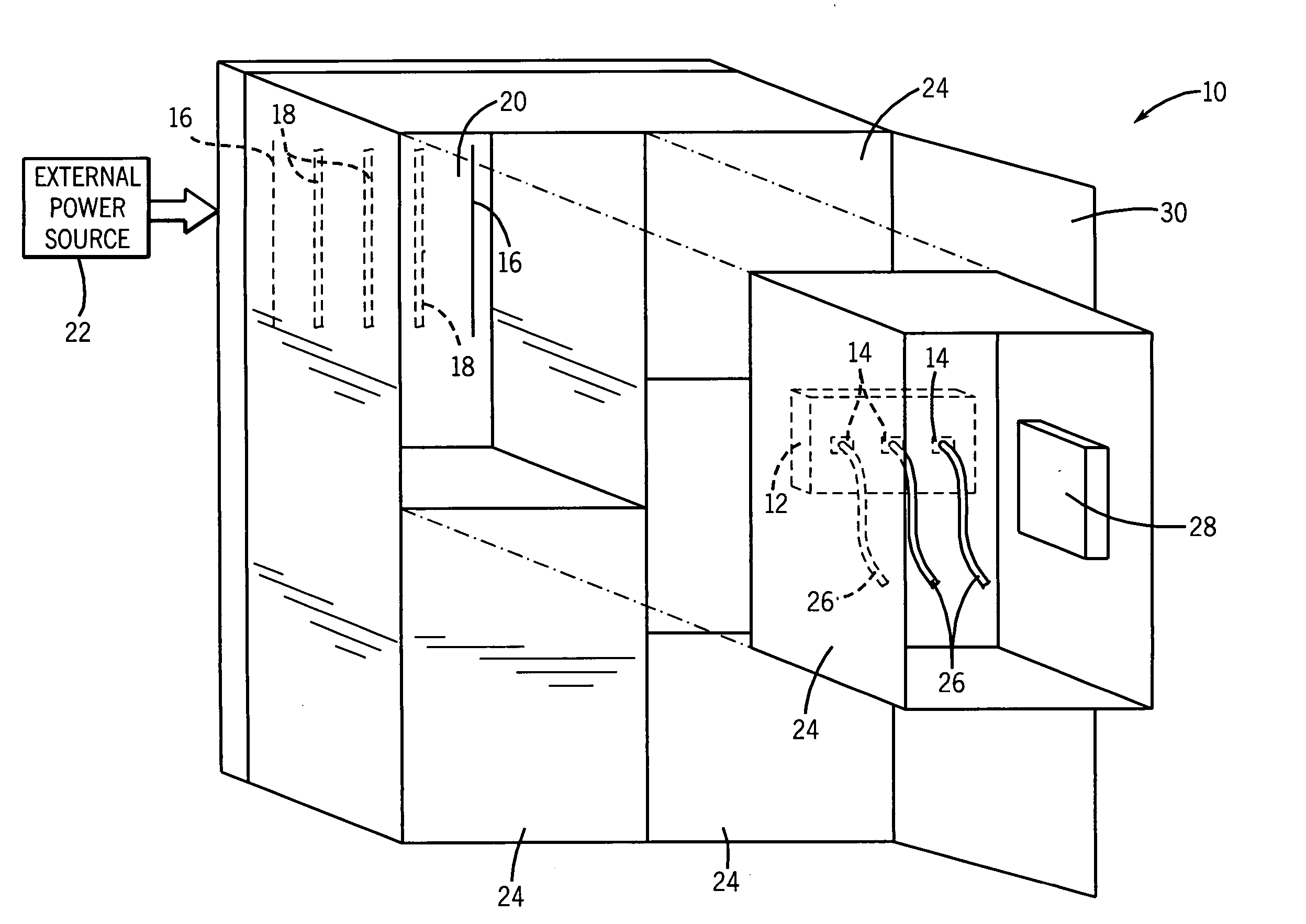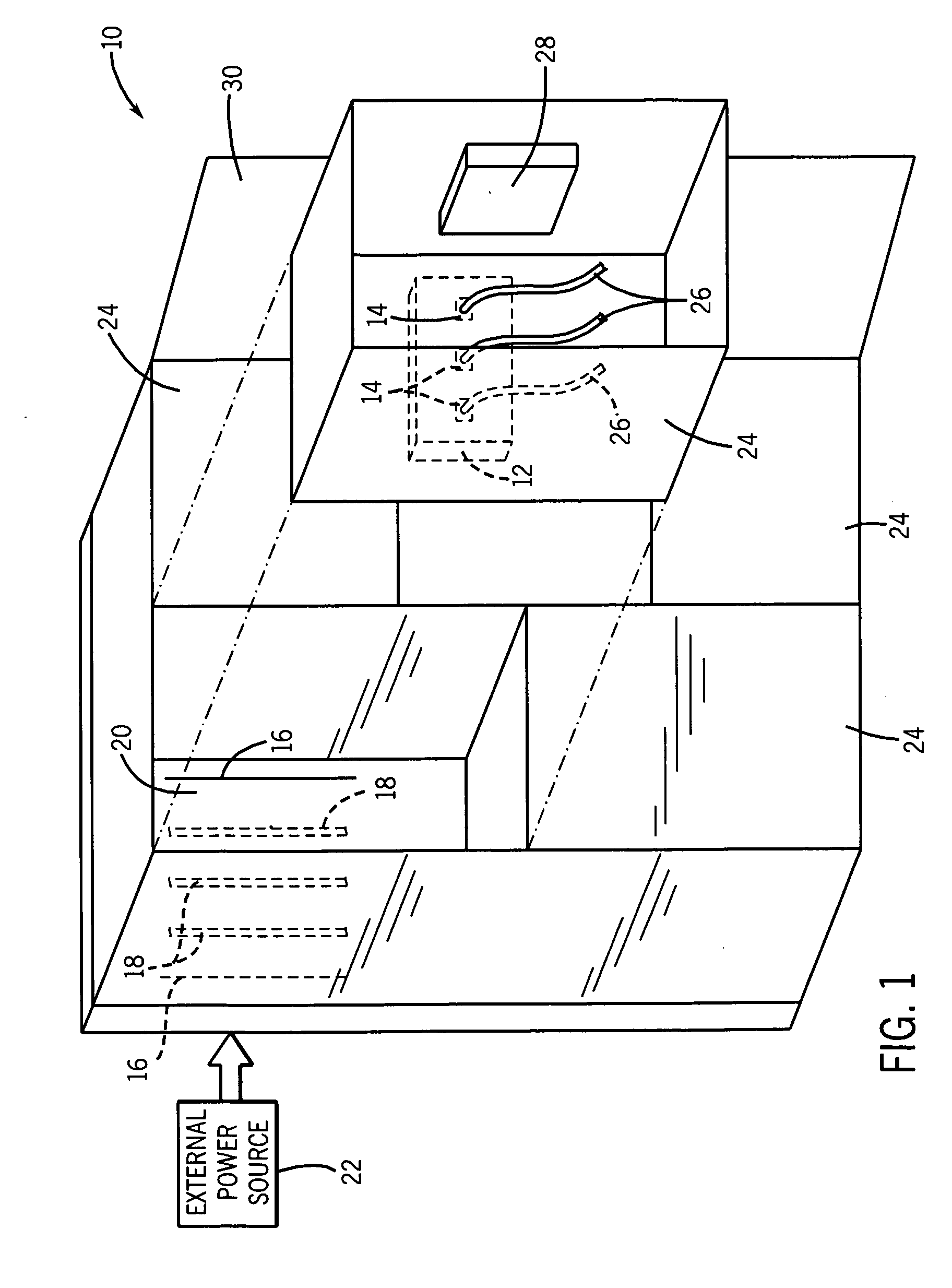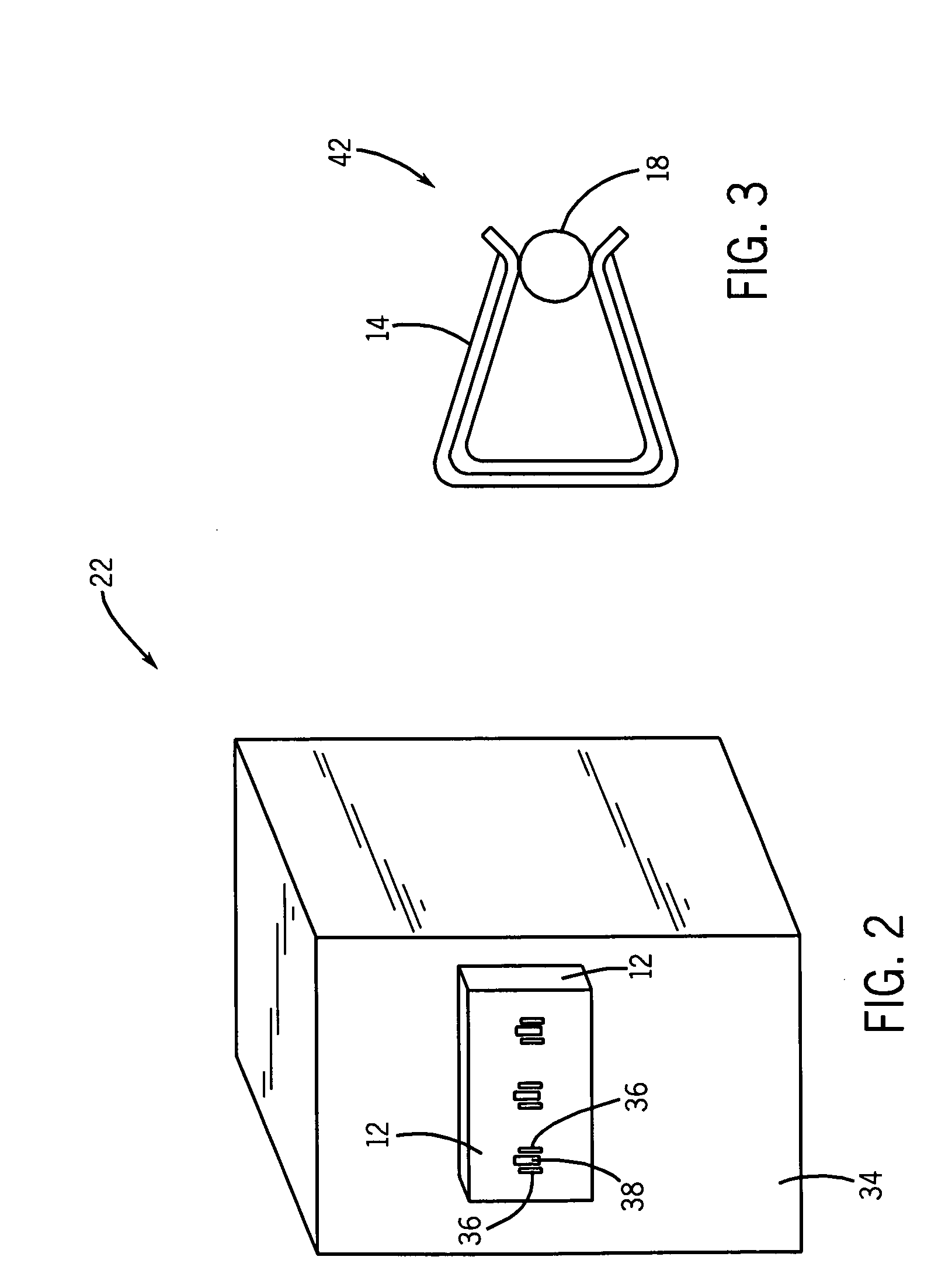Arc extinguishing stab housing and method
- Summary
- Abstract
- Description
- Claims
- Application Information
AI Technical Summary
Benefits of technology
Problems solved by technology
Method used
Image
Examples
Embodiment Construction
[0029] Beginning with FIG. 1, an exemplary motor control center (MCC) 10 formed of a large metal enclosure includes a stab housing 12 that isolates electrical connectors, such as metal power stabs 14. The stabs 14 are configured to engage the vertical power bus (bars) 18 through openings in a vertical bus cover 16 at the back wall 20 of the MCC 10. In this example, the vertical power bus 18 receives power from a horizontal power bus which in turn receives power, such as 208 to 690 volt ac power, from an external power source 22. Thus, in this embodiment, the three vertical power bus bars 18 deliver three phase ac power to the three stabs 14 at the bucket or unit 24. To form an electrical connection or termination, the stabs 14 engage the bars 18 as the unit 24 is slid into its respective cavity where the unit 24 resides during normal operation.
[0030] Power leads 26 electrically couple to the stabs 14 and deliver power to components 28, such components 28 including fuses, circuit br...
PUM
 Login to View More
Login to View More Abstract
Description
Claims
Application Information
 Login to View More
Login to View More - R&D
- Intellectual Property
- Life Sciences
- Materials
- Tech Scout
- Unparalleled Data Quality
- Higher Quality Content
- 60% Fewer Hallucinations
Browse by: Latest US Patents, China's latest patents, Technical Efficacy Thesaurus, Application Domain, Technology Topic, Popular Technical Reports.
© 2025 PatSnap. All rights reserved.Legal|Privacy policy|Modern Slavery Act Transparency Statement|Sitemap|About US| Contact US: help@patsnap.com



